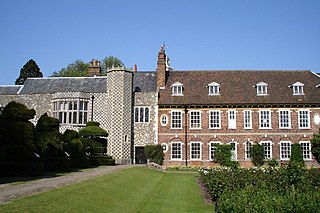
There have been three baronetcies created for persons with the surname Booth, one in the Baronetage of England and two in the Baronetage of the United Kingdom. The 1916 creation remains extant, the 1835 creation became extinct in 1896 and the 1611 baronetcy has been dormant since 1797. The senior line of the first creation was elevated to the peerage as Baron Delamer and Earl of Warrington.

There have been six baronetcies created for persons with the surname Smyth, two in the Baronetage of England, one in the Baronetage of Great Britain, one in the Baronetage of Ireland and two in the Baronetage of the United Kingdom. One creation is extant as of 2010.
Nineteen baronetcies have been created for persons with the surname Hamilton, eight in the Baronetage of Nova Scotia, one in the Baronetage of England, five in the Baronetage of Ireland, one in the Baronetage of Great Britain and four in the Baronetage of the United Kingdom. As of 2008 two creations are extant, two are dormant, two are either extinct or dormant and twelve extinct.

There have been two Baronetcies created for persons with the surname Austen, one in the Baronetage of England and one in the Baronetage of Great Britain. Both creations are extinct.
There have been six Forster Baronetcies, four in the Baronetage of England, one in the Baronetage of Ireland and one in the Baronetage of the United Kingdom. All are extinct.

There have been two baronetcies created for members of the Whitmore family, one in the Baronetage of England and one in the Baronetage of the United Kingdom. One creation is extinct while the other is extant.
There have been nine baronetcies created for persons with the surname Lloyd, three in the Baronetage of England, three in the Baronetage of Great Britain and three in the Baronetage of the United Kingdom. Two of the creations are extant as of 2010.
There have been three baronetcies created for persons with the surname Everard, one in the Baronetage of Ireland, one in the Baronetage of England and one in the Baronetage of the United Kingdom. Only one creation is extant as of 2010.
There have been three Baronetcies created for the family of Walker, later known as Forestier-Walker. The original title was in the Baronetage of England and the other two in the Baronetage of the United Kingdom. The earliest and the latest are both extinct, but one baronetcy is still extant.
There have been two baronetcies created for people named Cole, one in the Baronetage of England and one in the Baronetage of Ireland.

Sir Job Charlton, 1st Baronet KS was an English judge and politician who sat in the House of Commons between 1659 and 1679. He was Speaker of the House of Commons of England briefly in 1673.

The Golding Baronetcy, of Colston Bassett in the County of Nottingham, was a title in the Baronetage of England. It was created on 27 September 1642 for Edward Golding. The title became extinct on the death of the third Baronet in 1715.
The Winchcombe Baronetcy, of Bucklebury in the County of Berkshire, was a title in the Baronetage of England. It was created on 18 June 1661 for Henry Winchcombe. The second Baronet sat as Member of Parliament for Berkshire. The title became extinct on his death in 1703. The Winchcombe estates passed to his eldest daughter, Frances Winchcombe, wife of Henry St John, 1st Viscount Bolingbroke.

The Fowell Baronetcy, of Fowellscombe in the County of Devon, was a title in the Baronetage of England. It was created on 30 April 1661 for Edmund Fowell of Fowelscombe in the parish of Ugborough, Devon, previously Member of Parliament for Ashburton. The second Baronet also represented Ashburton in Parliament. The third Baronet was Member of Parliament for Totnes. The title became extinct on his death in 1692.
There have been six baronetcies created for persons with the surname Wright, three in the Baronetage of England, two in the Baronetage of Great Britain and one in the Baronetage of the United Kingdom. All creations are extinct.

Thomas Cromwell, 1st Earl of Ardglass, 11 June 1594 to 20 November 1653, was an English nobleman, son of Edward Cromwell, 3rd Baron Cromwell and his second wife Frances Rugge.
Sir Henry Wright, 1st Baronet was a member of parliament for Harwich in the parliaments of 1660 and 1661.

Sir Robert Barnham, 1st Baronet of Boughton Monchelsea Place was an English politician who sat in the House of Commons from 1660 to 1679.
Robert Robartes, Viscount Bodmin was an English diplomat and politician who sat in the House of Commons between 1660 and 1679. He was later ambassador to Denmark.
There have been two baronetcies created for members of the Cambell family, both in the Baronetage of England. Both creations are extinct.









